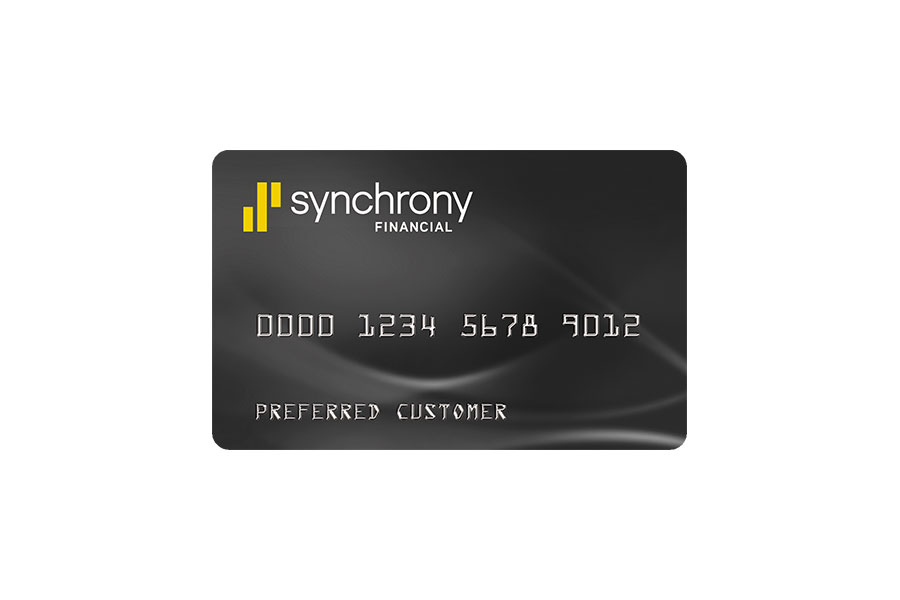Most lenders look at your FICO score when deciding whether to approve you for a loan, mortgage, or credit card. The challenge is that FICO scores usually cost money to access, which makes it harder to track your credit health without paying for it.

Fortunately, several credit card issuers now give cardholders free access to their FICO score every month. This benefit often comes with credit monitoring tools, so you can see how your credit score changes over time and what factors are influencing it.
It’s different from a free credit report, which you can get from each credit bureau once a year. A credit report shows your account history, but not the number lenders care about most—your FICO score. That’s why these credit cards are especially valuable.
How to Get Your FICO Score Free With Credit Cards
Some credit card issuers now include free FICO score access as part of their benefits. This feature is often paired with credit monitoring tools that make it easier to see changes in your credit health over time. If your current card doesn’t offer this, it may be worth considering one that does.
You don’t need to carry a balance or pay interest to use this perk. As long as you use your card responsibly, you can check your FICO score for free each month. The key is to choose a card that fits your financial goals—whether that means earning rewards, getting a lower interest rate, or accessing specific benefits—while also giving you regular updates on your credit score.
Best Credit Cards That Give Free FICO Scores
Here’s a list of major credit card issuers that give you free access to your FICO score. For each one, you’ll see which type of account is required and whether bank membership alone is enough to qualify.
| Credit Card Issuer | Who Can Access |
|---|---|
| American Express | Anyone enrolled in MyCredit Guide (no card required) |
| Bank of America | Cardholders |
| Barclaycard US | Cardholders |
| Chase | Slate, Freedom, Freedom Unlimited cardholders (primary cardholders) |
| Citi | Select cardholders |
| Commerce Bank | Cardholders |
| Discover | Cardholders (and anyone via Credit Scorecard platform) |
| Navy Federal Credit Union | Primary cardholders |
| Walmart Credit Card (Capital One) | Cardholders enrolled in e-statements |
| Wells Fargo | Any consumer credit account holder (credit card, loan, mortgage, etc.) |
Detailed Look at Credit Cards With Free FICO Scores
The table above gives you a quick snapshot of which credit card issuers provide free FICO score access. Below, you’ll find more details on each issuer, including which credit bureau they use, how often scores are updated, and any special features that come with the service. This way, you can decide which card is the best fit for tracking your credit health.
American Express Free FICO Score Access
American Express provides cardholders with free access to their Experian FICO Score 8. Through its MyCredit Guide, even non-cardholders can sign up to see their FICO score, review their credit report, and use tools like a FICO Score Simulator. Scores are updated monthly, and you can track changes over time.
Bank of America Free FICO Score Access
Bank of America gives cardholders a TransUnion FICO Score with helpful trend charts. You can see how your credit score compares nationally, what factors are influencing it, and receive notifications when your updated score is available. Updates arrive monthly through online and mobile banking.
Barclaycard US Free FICO Score Access
Barclaycard US provides a TransUnion FICO Score that updates every month. Cardholders also receive email alerts whenever their score changes, along with explanations about what caused the shift.
Chase Free FICO Score Access
Chase offers Experian FICO Score 8 access to cardholders, including popular options like the Slate and Freedom cards. You’ll see not only your current FICO score, but also an analysis of what is impacting it and tips on how to improve. Updates occur monthly through the Chase app or online banking.
Citi Free FICO Score Access
Citi gives select cardholders access to their Equifax FICO Score. Scores are updated monthly and displayed with an easy-to-read chart that shows how lenders view different ranges. You can also see historical data to track your progress.
Commerce Bank Free FICO Score Access
Commerce Bank includes your monthly FICO score right on your statement. Along with the number, you’ll see the main reasons behind it and tips to raise your score. This feature also shows how your score can affect rates and loan terms.
Discover Free FICO Score Access
Discover offers all cardholders a free TransUnion FICO Score 8, updated monthly. You can view your score on your statement or online, along with the top two factors affecting it. Discover also makes its Credit Scorecard available to anyone, even non-cardholders.
First Bankcard Free FICO Score Access
First Bankcard provides monthly access to your FICO 8 Bankcard Score, the same version many banks use to evaluate customers. Cardholders can log in to view their score along with the key factors influencing it.
Navy Federal Credit Union Free FICO Score Access
Navy Federal Credit Union gives primary cardholders free monthly access to their TransUnion FICO Score 9. Scores can be viewed online or through the mobile app. Updates arrive monthly, and members can see the top factors impacting their score.
Walmart Credit Card Free FICO Score Access
Walmart credit cardholders who enroll in electronic statements can access their free FICO score each month. Along with your score, you’ll see the top two reasons behind it, helping you understand what’s affecting your number.
Wells Fargo Free FICO Score Access
Wells Fargo offers Experian FICO Score 9 access to anyone with a consumer credit account, including credit cards, auto loans, mortgages, and personal loans. Scores update monthly and are available through the Wells Fargo mobile app or online banking.
Credit Cards With Alternative Free Credit Score Access
Some credit card issuers don’t provide a FICO score, but they do offer other credit score models at no cost. These services can still help you track your credit health, monitor changes, and catch potential issues early.
Quick Comparison Table
| Credit Card Issuer | Who Can Access | Score Model Provided |
|---|---|---|
| Capital One (CreditWise) | Anyone (FICO Score 8 for customers; VantageScore 3.0 for non-customers) | TransUnion |
| U.S. Bank | Account holders | VantageScore 3.0 (TransUnion) |
| Discover Credit Scorecard | Anyone (no account required) | TransUnion FICO Score 8 |
| Credit One Bank* | Some cardholders (verify terms) | Experian (credit score + summary) |
*Credit One Bank’s benefit has been inconsistent in recent years. Verify directly with the issuer before relying on this feature.
Detailed Look at Alternative Credit Score Access
The table gives you a quick overview, but here’s a closer look at what each issuer offers, who qualifies, and how often the scores are updated.
Capital One CreditWise and FICO Score Access
Capital One’s CreditWise tool is available to everyone, even if you don’t have a Capital One account. Non-customers see their TransUnion VantageScore 3.0 and credit report details. Capital One customers now receive free daily access to their TransUnion FICO Score 8, which is the same model most lenders use.
U.S. Bank VantageScore Access
U.S. Bank account holders get free weekly access to their VantageScore 3.0, based on their TransUnion credit report. The service includes a credit score simulator, personalized tips, and alerts for major changes. It’s available through the U.S. Bank mobile app and online banking.
Discover Credit Scorecard
Discover offers its Credit Scorecard to anyone, whether or not you have a Discover credit card. It provides a free TransUnion FICO Score 8, along with the top two factors impacting your score. Updates are monthly, and you can view your score online at any time.
Credit One Bank Credit Score Access
Credit One Bank has offered free Experian credit score access and report summaries to some cardholders. However, this feature has not been consistent. If you’re considering a Credit One card, check the current terms to confirm whether this benefit is included.
Differences Between FICO and Other Credit Scores
FICO scores carry the most weight in lending decisions. More than 90% of lenders rely on FICO when reviewing applications for mortgages, auto loans, and credit cards. The model has been in use for decades and is trusted for its consistency.
VantageScore is the main alternative. It was created by the three credit bureaus and is designed to score consumers with shorter credit histories. It can also factor in things like rent and utility payments.
While helpful for credit monitoring, VantageScore is more often used by financial apps and some card issuers—not by mortgage or auto lenders. Several websites, such as Credit Karma and Credit Sesame, provide free access to VantageScore instead of FICO.
If you want a clear picture of how banks and lenders see you, tracking your FICO score should be the priority.
Why Your Credit Scores May Differ Across Reports
Even when using the same scoring model, your numbers can differ depending on the credit bureau. Equifax, Experian, and TransUnion each collect slightly different information, and not all creditors report to every bureau. That’s why your FICO score with one bureau might be higher or lower than the others.
Most lenders check all three reports to see the full picture. For loans, they often use the middle score as the deciding number. With joint applications, they’ll usually take the lower of the two middle scores. For example, if your middle score is 680 and your spouse’s is 625, the lender will use 625 when setting loan terms.
Effective Strategies to Boost Your FICO Score
Raising your FICO score comes down to building strong habits and focusing on the factors lenders care about most. Here are the key steps that make the biggest difference:
- Pay your bills on time: Payment history is the single largest factor in your FICO score. Setting up autopay or reminders can help you avoid late payments and build consistency.
- Keep credit utilization low: Aim to use less than 30% of your total available credit. Paying down high balances and asking for a credit line increase can quickly lower your credit utilization ratio.
- Check your credit reports for errors: Review your credit reports from all three credit bureaus regularly. Dispute any mistakes you find, since correcting errors can give your score an immediate boost.
- Consider professional credit repair: If handling disputes feels overwhelming, credit repair services can step in to manage the process for you, addressing inaccuracies and negotiating with creditors on your behalf.
- Monitor your progress: Use free credit monitoring tools from banks, credit unions, or apps to track your credit score over time. Staying informed helps you spot problems early and keep good habits on track.
With steady effort, these strategies can strengthen your FICO score and put you in position for better rates and loan approvals.
Final Thoughts
Your FICO score plays a huge role in your financial opportunities, and the good news is you don’t need to pay to keep track of it. Many credit card issuers now give free access to your FICO score, making it easier to stay informed and see how your financial decisions affect your credit health.
By choosing the right card and practicing smart credit habits, you can watch your score improve month after month. Whether you’re preparing for a mortgage, refinancing a loan, or simply working toward stronger financial stability, knowing your FICO score puts you in control.
Use these tools to your advantage, stay consistent with your credit habits, and you’ll be better positioned for lower rates, higher approvals, and more financial freedom.




